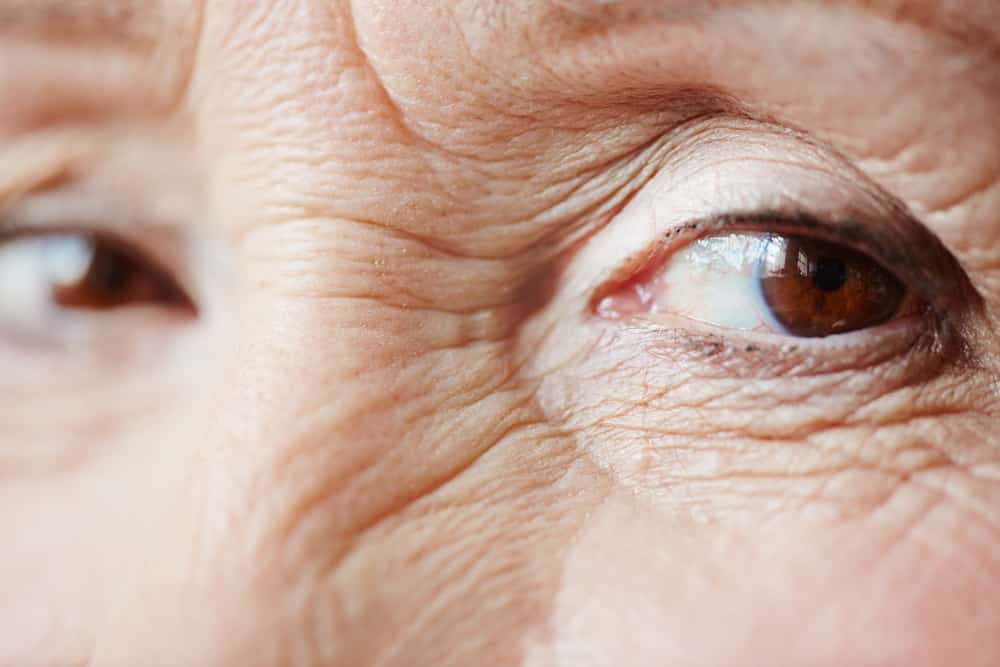As you get older, have you noticed the menus in restaurants are getting harder to read? That’s just a part of how vision changes with age. Scroll down to learn why it happens, and what you can do about it.
How Vision Changes with Age
If you’re in your late thirties or older, you’ve probably noticed that the ways you interact with the world are changing. Are you squinting at your phone a little more than usual? Do you have to turn on an extra light to read at night? Has your optometrist hinted that it might be time to purchase some reading glasses? Don’t worry, nothing unusual is afoot. This is all a part of how vision changes with age.
However normal it is, vision changes can be unsettling. Experiencing these changes for the first time can be disorienting and frustrating, especially if you’ve never had vision issues before. Let’s talk about how vision changes with age, and what you can do to keep your eyes in tip-top condition no matter how old you are.
Why Does Aging Affect Your Vision?
You may be wondering why aging affects your vision at all. Your eyes have worked perfectly well up to this point, so why would that change now? The human eye is a beautiful and complex organ, made up of lots of smaller pieces that come together in order to allow you to see. Aging affects those different systems in some complicated ways:
- As we age, our retinas and other eye organs become less sensitive to light. Since perceiving light is how we process visual information, many people require more light to do their day-to-day tasks.
- Our eye lenses harden as we age, and our tear ducts produce fewer tears. Since these changes make our lenses less flexible, they cannot focus as easily. This can result in dry eyes and also explains why aging eyes have trouble focusing on small text.
- Our eye lenses can discolor slightly as we age, complicating visual information by making it more difficult to see color and texture.
- You may notice issues with glare from unexpected light sources. For example, have you ever been driving at night and been suddenly blinded by another pair of headlights? As we age, the eye’s lens loses some of its ability to refract light correctly, making bright lights more disorienting than usual.
- Certain individuals are more vulnerable to age-related vision issues than others. If macular degeneration runs in your family, or if you have health conditions that can affect your eyes like diabetes, you should be especially aware that these changes are possible.
If none of this has happened for you, that’s good news! It may not be time for you to worry about this yet. However, if this sounds familiar, it’s probably time to take some additional steps to protect your eyesight.
What Can I Do About Age-Related Vision Changes?
It may feel stressful to contemplate, but don’t panic just yet. Age-related vision changes are extremely common, and optometrists are skilled in helping people navigate them. You can’t escape how vision changes with age, but you can follow experts’ advice to prevent major problems:
Visit Your Optometrist Regularly
Many people assume that if they aren’t having serious vision problems or if they don’t have an existing issue to correct with glasses or contact lenses, then they don’t need to see their optometrist too often. While this may be true for some, it’s still important to see an optometrist on a regular basis, especially as you grow older. Seeing an optometrist regularly will help you keep track of your eye health more actively and also help you access vision aids if and when you need them. Talk to your optometrist about how often you should be visiting their office.
Wear Your Glasses
Some people are embarrassed by having to add “cheaters,” or reading glasses, to their daily routine. However, using a vision aid is nothing to be ashamed of. These aids can help you see better, avoid headaches, and maintain your independence. If glasses aren’t your favorite, ask your doctor about contact lenses, or laser surgery as a corrective option.
_____
We might get a little nervous about how vision changes as we age, but the truth is that it happens to everyone. Instead of worrying, make an appointment with an optometrist, and put your days of squinting at menus behind you.
Since 1975, the Heffington family has been assisting the Springfield community with top-quality eye care and affordable eyeglasses and contacts. To learn more about our products and services, please get in touch with us online, send an email to [email protected], or give us a call at 417-869-3937 (Optiland location) or 417-882-3937 (House of Vision location). We look forward to hearing from you!

